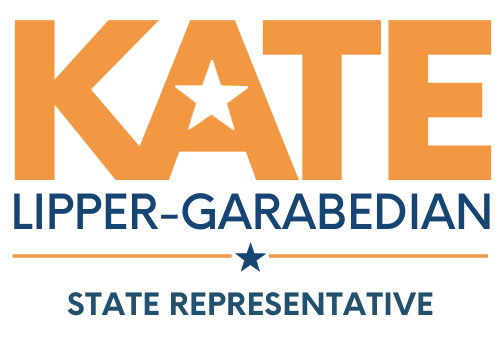State Representative Lipper-Garabedian Joines Massachusetts House To Pass Home Equity Legislation
Legislation will protect property owners from “equity theft”
BOSTON – Wednesday, June 26, 2024 – State Representative Kate Lipper-Garabedian (D-Melrose) joined the Massachusetts House of Representatives to pass “An Act relative to municipal tax lien procedures and protections for property owners in the Commonwealth,” which would align current statute with a recent decision by the U.S. Supreme Court. The legislation secures the rights of property owners to reclaim any excess equity to which they are entitled after all taxes and fees are repaid to the municipalities following a tax foreclosure, while substantially increasing notifications and other protections for property owners throughout the foreclosure process.
“This legislation is not only an effort to ensure that the Commonwealth’s laws comply with court rulings, it is also about protecting the rights of property owners here in Massachusetts throughout the tax lien foreclosure process,” said House Speaker Ronald J. Mariano (D-Quincy). “I want to thank Chairman Cusack for his work on this legislation, as well as all my colleagues in the House for voting to advance these important reforms.”
“This legislation ensure Massachusetts is constitutionally aligned with current statute following the Supreme Court’s Tyler v. Hennepin decision,” said State Representative Lipper-Garabedian. “This bill will ensure property owners in the Commonwealth are properly protected following a tax foreclosure, allowing them to reclaim any excess equity while also extending additional protections and provides clarification to the tax lien foreclosure process for our cities and towns.”
"This legislation provides much needed consumer protections to property owners and clarity to municipalities on tax lien procedures," said Representative Mark J. Cusack (D-Braintree), House Chair of the Joint Committee on Revenue. “Equity will now be returned to its rightful owner while making cities and towns whole. Thank you to Speaker Mariano, Ways and Means Chair Michlewitz and my colleagues for their leadership and diligence on this important legislation that will positively impact Massachusetts."
The Supreme Court ruled in Tyler v. Hennepin County, Minnesota that state laws allowing municipalities to retain equity from a foreclosed property, in excess of any taxes and fees owed by a property owner, were unconstitutional under the Takings Clause of the Fifth Amendment of the U.S. Constitution. This ruling had an impact on the municipal tax lien foreclosure process in the Commonwealth, since Massachusetts law also allowed municipalities or third parties that purchased tax liens to keep excess equity following a property foreclosure for unpaid taxes. Underscoring the need for legislative action, a recent ruling by the Massachusetts Superior Court (Ashley M. Mills v. City of Springfield) found that the property foreclosure process in Massachusetts was unconstitutional, a ruling that was supported by legal briefings from the Massachusetts Attorney General’s Office.
This bill ensures that Massachusetts law is constitutional throughout all municipalities in the Commonwealth, and fair to those subject to municipal tax lien foreclosure proceedings. This legislation does the following:
· Requires that a detailed accounting be taken following a foreclosure in a tax taking of the excess equity that is available;
· Any excess equity must be returned to the former owner within 60 days;
· Allows for retroactive claims for excess equity from May 25, 2023, until date of passage;
· Updates notice requirements where the subject property is residential;
· Allows former owners the opportunity to file a claim in Superior Court if there is a dispute on the amount of excess equity owed;
· Increases the maximum length for repayment agreements for owed taxes from five to 10 years;
· Decrease the amount for a down payment for the repayment agreements from 25 percent to 10 percent and;
· Establishes a special commission to conduct a comprehensive study relative to the current law and practices around the collection of delinquent property tax revenue by municipalities in the Commonwealth.
Having passed the House of Representatives 154-0, the bill now goes to the Senate for its consideration.
###
